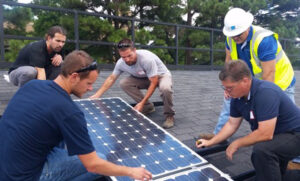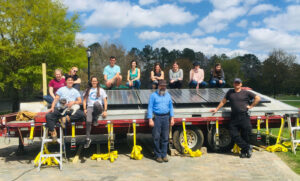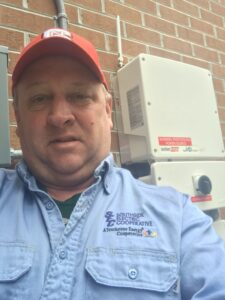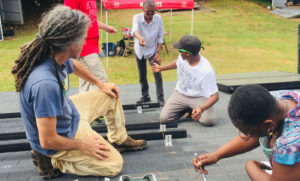Students and Professionals Enhance Their Solar Skills with NCCETC Training Program
 The N.C. Clean Energy Technology Center (Center) offers its expertise in the clean energy industry through online and in-person educational workshops on technology, policy and business topics regarding clean energy. Recently, the Center announced the training schedule for 2021, featuring courses on solar PV and solar storage. The entire schedule for the 2021 calendar year is available here.
The N.C. Clean Energy Technology Center (Center) offers its expertise in the clean energy industry through online and in-person educational workshops on technology, policy and business topics regarding clean energy. Recently, the Center announced the training schedule for 2021, featuring courses on solar PV and solar storage. The entire schedule for the 2021 calendar year is available here.
Allison Carr, clean energy training specialist, coordinates the Center’s training program and seeks to ensure that courses correspond with the needs of the industry. She says, “our courses are intended to support anyone who wants to work in the renewable energy industry whether they are recent graduates, looking to switch careers, or seeking more in-depth technical knowledge.”
Those interested in taking training courses may choose from short, certificate classes such as the Certificate in Renewable Energy Management to the longer, in-depth Renewable Energy Technologies Diploma Series. Companies can also work with the Center directly to design training programs for their specific needs.
Allison explains “all students have an opportunity to customize your own training program by choosing online or in-person options. And trainees can add-on the more advanced or technology specific courses, like Solar Storage, to gain more experience. We also offer course bundles that allow you to save money when you register for a series of classes.”
What can someone gain from taking a training class and why would they sign up?
Marvin Miles decided to enroll in courses at the Center to establish a good foundation for pursuing his Master’s Degree in Sustainable Technology and Systems at a school in the United Kingdom.
“The ability to take the NABCEP test after the course really interested me,” Marvin says. “I passed it and now I’m more confident and prepared for any potential job opportunities that are in the renewable energy industry.”
 Through the Center, Marvin learned the fundamentals of design and installation of photovoltaic systems through the REPV course which qualified him to sit for the NABCEP PV Associate Exam to qualify for becoming a NABCEP Certified PV Installation Professional.
Through the Center, Marvin learned the fundamentals of design and installation of photovoltaic systems through the REPV course which qualified him to sit for the NABCEP PV Associate Exam to qualify for becoming a NABCEP Certified PV Installation Professional.
“The REPV courses were the most beneficial because it was so in-depth on the entire installation process,” Marvin explains.
Preparing for the Future

As an Energy Management Advisor for Southside Electric Cooperative, Scott Wallace decided to take training with the Center due to the ever-increasing demand the industry has seen for solar installations.
“I wanted to be able to answer customer questions,” Scott notes, “Now, I’m the go-to man – I understand what to look for when I’m signing off on new [solar] installs.”
Scott also plans to take more advanced courses with the Center and gain hands on experience once in-person classes resume. From the online courses, Scott explains he took as many snapshots as possible, “I kept what’s most important for me to always have on hand.”
The Center offers both in-person and online options for the courses to best fit an individual’s schedule. Due to COVID-19, however, all courses for the spring semester will be virtual. We hope to resume in-person classes later on this year.
“[Solar] is a growing industry, it’s the future,” Scott says, “The more I know about it in the earlier stages, the easier it will be to grow with it.”
 Other students and graduates of the program have shared similar positive experiences. If you are interested in learning more about the renewable energy industry and technologies, now is the time to register and advance your professional development.
Other students and graduates of the program have shared similar positive experiences. If you are interested in learning more about the renewable energy industry and technologies, now is the time to register and advance your professional development.
“As more renewable energy projects are built, there will be a need for technicians and professionals who can ensure that the solar arrays and wind turbines continue to produce clean energy that is safe and reliable,” Allison says, “all of us need to continue learning to keep up with a rapidly evolving industry.”
Our training programs help individuals gain essential skills and credentials to hit the ground running in this industry and lead the way towards a sustainable and energy efficient industry in North Carolina and beyond.